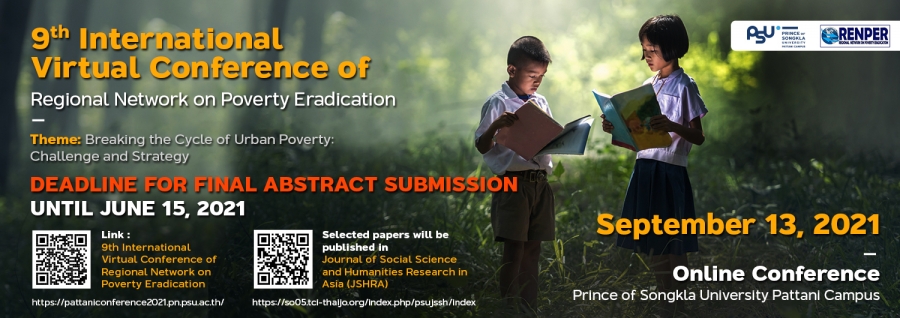Due to economy recession, poverty, food shortage, and inequality, the United Nations (UN) has declared sustainable development goals (SDG), 17 goals, to seek cooperation among all sectors including government, private, territory, and university networks to drive the goals for authentically sustainable development. This cooperation in all levels of these sectors, regional, national, and international are the key elements driving forward to meet 2030 goals.
Poverty is a problem that persists in Thai society regionally and nationally. The condition is results from a lack of economic security. On an individual level, it causes misery in people’s lives, including a lack of opportunity to improve the quality of life in many ways. Poverty also affects the development of the country in the end. The problems and causes of poverty come from factors within the individual and also by factors external to the individual.
Due to regional and national issues of poverty, Regional Network on Poverty Eradication (RENPER) has been initiated which aimed to share and exchange body of knowledge and best practices of each agency in solving the poverty among their regions. RENPER is initially and officially established on October 26–28, 2010 by Universiti Malaysia Kelantan (UMK) witness by University of Battanbang, Banking University of Ho Chi Minh City, Dhaka University, Bangladesh Agriculture University, Yangon University, Andalas University, Bengkulu University, Universiti Sains Malaysia, Universiti Teknologi MARA, Universiti Sultan Zainal Abidan and Prince of Songkla University.
Every year, RENPER organizes the International Seminar on Poverty Eradication. which is rotately hosted by university member. In 2021, the 9th RENPER will be organized and hosted by Prince of Songkla University, Pattani Campus with the theme “Breaking the Cycle of Urban Poverty: Challenge and Strategy” on September 13, 2021. The aims are to be a platform for academicians, researchers, scholars, students and related parties in sharing and exchange knowledge related to poverty and its impacts as well as providing effective solutions eradication in these regions.
000



